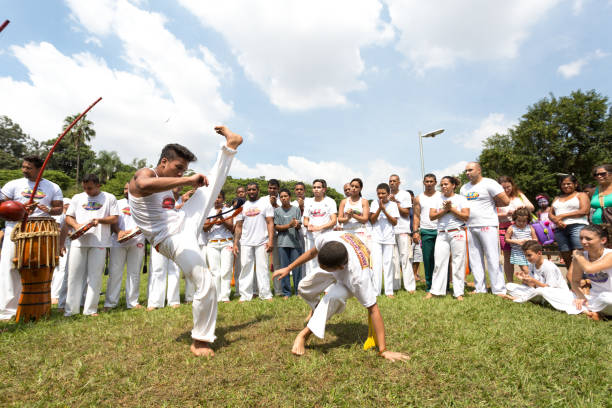Local Traditions
Local Ceremonies: Exploring Traditional and Unique Ceremonial Practices in Your Community
Local ceremonies are a vibrant expression of cultural heritage and community spirit. They provide a glimpse into the traditions, values, and history of a region, offering opportunities to celebrate, honor, and connect with local customs. From annual festivals to unique rites of passage, these ceremonies play a vital role in preserving and promoting cultural identity. Here’s a guide to exploring traditional and unique ceremonial practices in your community.
1. Annual Festivals: Celebrating Local Culture
Annual festivals are grand celebrations that often highlight regional traditions, arts, and cuisines. These events bring communities together and attract visitors eager to experience local culture.
Notable Annual Festivals
- Mardi Gras (New Orleans, USA): Known for its vibrant parades, masquerade balls, and lively music, Mardi Gras is a major cultural event celebrating the region’s French, Spanish, and Creole heritage.
- Oktoberfest (Munich, Germany): A world-famous beer festival that showcases Bavarian culture, including traditional music, dance, and cuisine.
Key Elements to Experience
- Parades and Processions: Colorful and energetic, featuring floats, costumes, and performances.
- Traditional Foods: Sample local specialties and festive dishes that reflect the region’s culinary heritage.
- Music and Dance: Enjoy performances of traditional music and dance that embody the community’s cultural expressions.
2. Rites of Passage: Marking Important Life Transitions
Rites of passage are ceremonies that signify significant transitions in an individual’s life, such as coming-of-age, marriage, or retirement. These rituals often carry deep cultural or religious significance.
Common Rites of Passage
- Quinceañera (Latin America): A traditional celebration marking a young woman’s transition from childhood to adulthood, featuring a formal party, religious ceremony, and dance.
- Bar/Bat Mitzvah (Jewish Communities): A coming-of-age ceremony for Jewish boys and girls, celebrating their religious maturity and responsibilities.
Key Aspects of Rites of Passage
- Ceremonial Traditions: Specific rituals, prayers, or rites performed to mark the transition.
- Family and Community Involvement: Gatherings of family and friends to celebrate and support the individual.
- Symbolic Acts: Activities or symbols that represent the significance of the transition, such as speeches, blessings, or gifts.
3. Religious Observances: Honoring Spiritual Beliefs
Religious observances are ceremonies that uphold spiritual beliefs and practices. They often involve worship, prayer, and community gatherings, reflecting the spiritual life of the community.
Notable Religious Observances
- Diwali (India): Known as the Festival of Lights, Diwali is a Hindu festival celebrating the triumph of light over darkness and good over evil. It includes lighting oil lamps, exchanging gifts, and feasting.
- Ramadan (Muslim Communities): A month-long period of fasting, prayer, and reflection, culminating in the celebration of Eid al-Fitr, which marks the end of Ramadan with communal prayers and festive meals.
Key Features of Religious Observances
- Rituals and Prayers: Specific religious practices performed during the observance.
- Festive Meals: Special foods and dishes prepared and shared with family and friends.
- Community Gatherings: Services, processions, or gatherings that bring together members of the faith community.
4. Cultural Traditions: Preserving Unique Local Customs
Cultural traditions are ceremonies and practices that embody the unique heritage of a community. These can include historical reenactments, traditional crafts, and folk art.
Examples of Cultural Traditions
- Japanese Tea Ceremony (Japan): A ritualistic preparation and consumption of matcha tea, emphasizing aesthetics, etiquette, and mindfulness.
- Midsummer Festival (Sweden): Celebrated with dancing around the maypole, traditional foods, and songs, marking the summer solstice and honoring nature’s bounty.
Key Elements of Cultural Traditions
- Traditional Attire: Participants often wear costumes or clothing that reflect historical or cultural significance.
- Crafts and Art: Displays of traditional craftsmanship, such as weaving, pottery, or painting.
- Storytelling and Music: Preservation of oral traditions through storytelling, music, and dance.
5. Local Commemorations: Honoring Historical and Community Events
Local commemorations are ceremonies that recognize and honor significant historical events, local heroes, or community achievements. They often serve to educate and inspire future generations.
Examples of Local Commemorations
- Remembrance Day (Commonwealth Countries): A day dedicated to honoring military personnel who lost their lives in wartime, marked by ceremonies, moments of silence, and memorial services.
- Founders Day (Various Communities): Celebrates the founding of a town or organization, often featuring historical reenactments, community gatherings, and educational activities.
Key Features of Local Commemorations
- Memorial Services: Ceremonies that pay tribute to individuals or events, often involving speeches, music, and readings.
- Educational Activities: Programs or exhibits that provide historical context and educate attendees about the significance of the commemoration.
- Community Engagement: Involvement of local residents in organizing and participating in the event.
Conclusion
Exploring local ceremonies provides a rich and immersive experience into the traditions and cultural practices of a community. From vibrant festivals and significant rites of passage to religious observances, cultural traditions, and commemorative events, each ceremony offers unique insights and opportunities to celebrate and connect with the heritage of the region.
Engaging with these local practices not only enhances your understanding of the community’s identity but also fosters a deeper appreciation for the diverse ways in which people honor and express their cultural and historical values. Dive into the world of local ceremonies and discover the fascinating tapestry of traditions that enrich your community.

